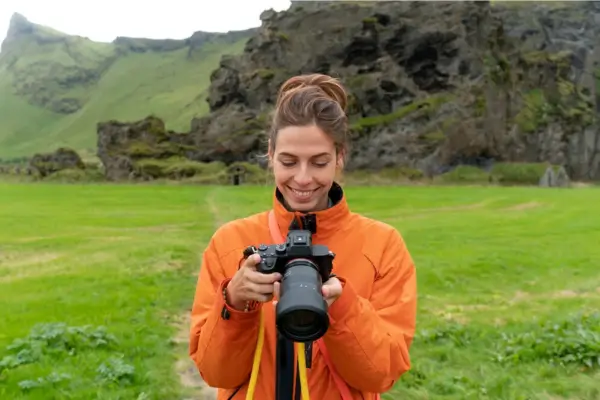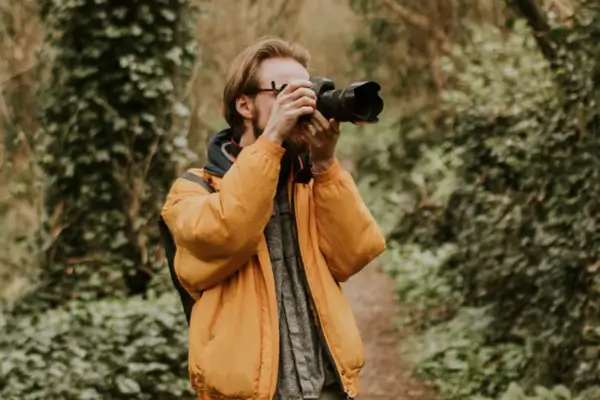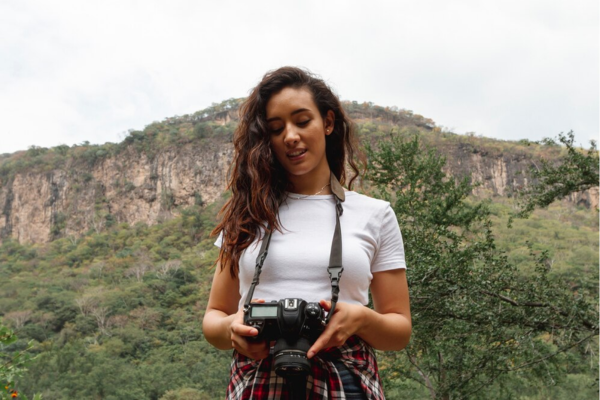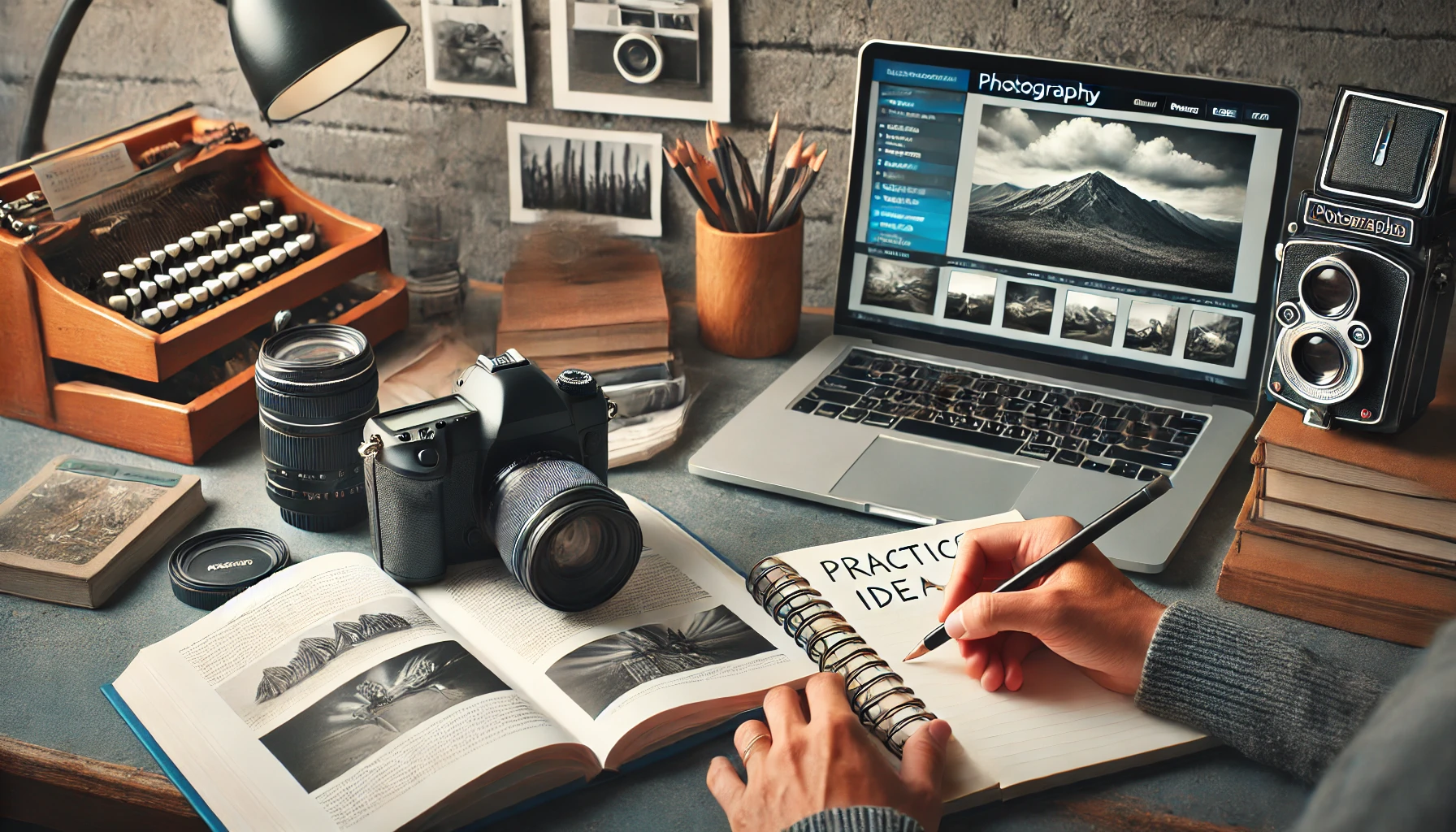Photography is an ever-evolving art that demands constant learning and adaptation. Whether you’re just starting or have been behind the camera for years, the journey of mastering photography is one of continuous growth. From new technologies and software updates to changing trends and techniques, the world of photography never stays the same. To stay competitive and relevant, it’s essential to keep learning and improving your skills.
In this article, we’ll explore actionable tips and strategies that can help you enhance your photography abilities, no matter where you are in your journey. By embracing new challenges, experimenting with different styles, and seeking constructive feedback, you’ll be well on your way to becoming a more proficient and creative photographer. Let’s dive in!
Embrace Online Photography Courses
In today’s digital age, learning photography has never been easier thanks to a wide range of online platforms offering high-quality courses. Websites like Skillshare, Udemy, and MasterClass provide an abundance of options for photographers at every level, from beginners to seasoned professionals. These platforms host courses on a variety of photography topics, including composition, lighting techniques, editing, and niche areas such as portrait, landscape, or product photography.
One of the key benefits of online courses is their structured learning approach. Unlike scattered tutorials or random YouTube videos, many of these platforms offer comprehensive curriculums that guide photographers through the process step-by-step. This structure not only helps photographers understand the basics but also deepens their expertise in advanced techniques. Whether you’re looking to grasp the fundamentals of aperture settings or refine your skills in advanced long-exposure photography, these courses allow you to learn at your own pace and revisit concepts as needed.
For those who have already mastered the basics and are ready to take their skills to the next level, there are many advanced courses to choose from. Platforms like MasterClass offer lessons from renowned photographers such as Annie Leibovitz and Jimmy Chin, focusing on expert techniques and professional insights that are often hard to come by in everyday photography. Similarly, Udemy offers specialized courses on everything from mastering studio lighting to creating cinematic images. These courses can help seasoned photographers refine their technique, explore new creative directions, and stay up-to-date with the latest trends and technologies in the photography world.
By embracing online courses, photographers can gain access to a wealth of knowledge and resources that would otherwise be difficult to find. Whether you’re starting out or advancing your career, structured learning through online platforms can be a powerful tool in honing your craft and unlocking your full potential.
Join Photography Communities and Forums
Engaging with other photographers is one of the most effective ways to continue learning and improving your craft. Photography communities and forums provide a space where you can connect with others who share your passion, whether you’re a beginner or a seasoned professional. These platforms offer invaluable opportunities for feedback, collaboration, and networking, all of which contribute to your growth as a photographer.
Feedback is one of the most important benefits of joining photography communities. Posting your work for review allows you to receive constructive criticism from others, which can help you identify areas for improvement. Sometimes, a fresh pair of eyes can catch details you might have missed, whether it’s about composition, lighting, or editing. This kind of input can be incredibly insightful and can push you to refine your skills.
Collaboration is another advantage of being part of a photography community. Through forums, you can connect with other photographers to collaborate on projects, share resources, and even join group challenges. These collaborations often open doors to new ideas, techniques, and approaches that you might not have explored on your own. Plus, working with others can be a great way to stay motivated and inspired.
Networking is a significant benefit, especially for those looking to build a career or expand their professional reach. Online photography communities can connect you with people from all over the world, whether they are clients, mentors, or fellow photographers. This global network can lead to opportunities for paid projects, workshops, or even invitations to exhibitions.
Popular online communities like Reddit’s photography subreddits, 500px, and various Facebook groups are excellent places to start. Subreddits like r/photography and r/photocritique allow you to engage in discussions, ask questions, and showcase your work to receive feedback from a large audience. On 500px, you can not only share your images but also explore other photographers’ portfolios for inspiration. Meanwhile, Facebook groups dedicated to photography provide a more intimate space to engage with like-minded individuals, discuss trends, and share tips.
Participating in discussions within these communities can spark creativity. The diverse perspectives and techniques shared by others often inspire new ideas, helping you see photography from different angles. Whether it’s experimenting with a new style, trying out a new editing technique, or simply learning about trends in the industry, these interactions can motivate you to push your own boundaries and enhance your creativity.
In short, photography communities and forums are invaluable tools for anyone looking to improve. They offer a supportive environment where you can learn from others, gain insights, and find inspiration that helps you grow as a photographer.

Attend Workshops and Photowalks
Hands-on learning experiences are some of the best ways to improve as a photographer. While online resources and self-study are valuable, there’s nothing quite like engaging directly with other photographers, instructors, and real-world environments. Workshops and photowalks offer an immersive experience that can elevate your skills and broaden your perspective.
Why Workshops Matter
Photography workshops provide a structured environment where you can focus on specific areas of your craft. Whether it’s portrait photography, landscape photography, or mastering lighting techniques, workshops are often led by experienced professionals who can guide you through practical exercises. You’ll receive immediate feedback, which can help refine your technique, build confidence, and inspire new ideas.
To find workshops, start by searching for photography schools or specialized instructors in your area. Many well-known platforms like CreativeLive, MasterClass, and Skillshare offer virtual workshops as well, which means you can learn from the comfort of your own home. You can also check local event listings, social media, and photography groups to discover smaller, more intimate workshops that may focus on specific aspects like night photography or editing techniques.
The Power of Photowalks
Photowalks are another excellent way to enhance your photography skills. These are informal, guided walks where photographers come together to shoot in various environments—whether in a city, park, or nature reserve. Photowalks allow you to practice in real-world settings, helping you gain practical experience and confidence in adjusting to different lighting, weather, and subjects.
Participating in a photowalk gives you the opportunity to try out new techniques while being surrounded by like-minded individuals who can offer advice and feedback. It’s a great way to push yourself out of your comfort zone, whether you’re shooting street photography, capturing candid moments, or experimenting with new gear. Additionally, photowalks allow you to network and learn from others, which can be incredibly valuable for both your personal and professional growth as a photographer.
In short, attending workshops and participating in photowalks are powerful ways to improve as a photographer. They provide hands-on, practical experiences that you simply can’t get from a textbook or online tutorial alone. Whether you’re learning a new technique or practicing in a dynamic environment, these experiences will help you grow, gain confidence, and become more versatile as a photographer.
Experiment with Different Photography Styles
One of the most effective ways to grow as a photographer is to experiment with different photography styles. Every style offers unique challenges and opportunities for creativity. Whether it’s the intricate details of macro photography, the moodiness of black-and-white photography, or the dynamic beauty of night photography, each style provides a new perspective and skill set.
Push Your Creative Boundaries
By stepping outside of your comfort zone and trying something new, you’ll not only learn new techniques but also push the boundaries of your creativity. For instance, macro photography allows you to explore the tiny details in nature that often go unnoticed, while black-and-white photography challenges you to think more about contrast, light, and composition. Night photography requires you to experiment with long exposures, light painting, and capturing the beauty of the world after dark. These new approaches will stretch your creative muscles and inspire you to see the world in different ways.
Open Up New Skill Sets
Experimenting with various styles helps you develop a broader skill set. You may start with portrait photography and discover an affinity for architectural shots, or perhaps you’ll find yourself fascinated by street photography. Each style requires its own set of techniques, and by exploring them, you can build a diverse portfolio while mastering a wide range of photography skills.
Start with Personal Projects
A great way to dive into new styles is by starting personal projects. For example, you could create a project focused on shooting landscapes at sunrise, or dedicate a month to experimenting with portraiture using only natural light. Personal projects allow you the freedom to practice without the pressure of commercial work. They offer a chance to experiment, fail, and succeed in a way that’s less intimidating. Plus, you’ll have the satisfaction of seeing how your skills evolve over time.
In conclusion, don’t be afraid to step out of your comfort zone and experiment with new photography styles. Not only will you expand your skill set, but you’ll also discover new passions within the world of photography. Whether you’re capturing intricate details, dramatic contrasts, or breathtaking night scenes, every style offers an exciting opportunity to learn and grow.

Learn Post-Processing and Editing Techniques
Post-processing and editing are essential skills for photographers looking to elevate the quality of their photos. While capturing the perfect shot is crucial, editing allows you to refine and enhance your images, bringing out the best in every detail. Post-processing can help correct exposure, adjust colors, sharpen images, and remove distractions—transforming a good photo into a great one.
One of the key benefits of editing is that it offers you control over the mood and style of your images. Whether you prefer bright, vibrant tones or a more moody, muted look, editing lets you personalize your work to reflect your artistic vision. It can also help you correct minor mistakes like incorrect white balance or slight blurriness, making your images look more professional.
Popular Software Tools for Editing
When it comes to editing software, there are plenty of options to choose from, depending on your needs and budget.
- Adobe Lightroom: Lightroom is a powerful tool used by many professional photographers. It’s perfect for organizing your photos and making global adjustments like exposure, contrast, and color correction. Lightroom also offers non-destructive editing, meaning your original image remains intact while you experiment with adjustments.
- Adobe Photoshop: Photoshop is the industry standard for detailed, pixel-level editing. It’s ideal for tasks like retouching portraits, creating composites, and applying advanced techniques like layer masking and blending. While it requires a bit more learning, Photoshop offers incredible flexibility and power.
- GIMP (GNU Image Manipulation Program): GIMP is a free, open-source alternative to Photoshop. While it doesn’t have all the features of Photoshop, it provides many tools for retouching and editing. It’s an excellent choice for beginners who want to dive into post-processing without the cost of premium software.
- Other Free Tools: If you’re just starting out, free online editors like Canva or Snapseed (mobile) can be great alternatives for basic editing tasks like cropping, color adjustment, and applying filters.
Learning Editing Skills
Mastering post-processing can take time, but there are many resources available to help you improve your editing skills:
- YouTube Tutorials: YouTube is a treasure trove of free tutorials. Channels like Phlearn, Piximperfect, and Adorama offer in-depth lessons on Lightroom, Photoshop, and other editing tools. Whether you’re learning the basics or looking for advanced techniques, there’s something for everyone.
- Online Courses: If you prefer more structured learning, websites like Skillshare and Udemy offer courses on photo editing. Many of these courses cater to various skill levels and cover everything from basic adjustments to advanced photo manipulation.
- Photography Blogs and Forums: Many photography blogs and forums offer detailed guides on specific editing techniques. Participating in these communities can also provide valuable feedback on your edits, helping you refine your skills.
By investing time into learning post-processing and editing, you’ll have the power to turn your raw images into stunning works of art. With the right tools and resources, you’ll not only improve your editing abilities but also gain more confidence in your photography as a whole.
Seek Critiques and Feedback
One of the most valuable tools for growth as a photographer is constructive criticism. While it can sometimes feel daunting to share your work with others, the insights you gain from peers, mentors, or photography communities can be invaluable in honing your skills. Critiques offer a fresh perspective on your work, pointing out areas for improvement that you might not have noticed yourself. Whether it’s about composition, lighting, or editing, the feedback you receive can help you see your photos in a new light and push you to refine your techniques.
Peers and mentors can provide suggestions for improvement based on their experience, guiding you to avoid common pitfalls and encouraging you to experiment with new approaches. Photography communities, both online and in-person, are great places to receive feedback from people with varying expertise and styles. Engaging in these communities not only provides an opportunity for critiques but also allows you to observe how others tackle similar challenges and learn from their successes and mistakes.
To maximize the benefit of feedback, it’s important to create a feedback loop. After receiving critiques, take time to reflect on the suggestions made and apply them to your next photoshoot or editing session. The key is not just to listen to feedback but to actively incorporate it into your work and continually track your progress. Over time, this iterative process of feedback and improvement will sharpen your skills and help you develop a more refined and personal style.
Remember, constructive criticism is about growth, not just correction. Embrace it as a tool to learn from your mistakes, push past your creative boundaries, and elevate your photography to the next level.

Stay Inspired by the Work of Other Photographers
One of the most effective ways to continue growing as a photographer is by drawing inspiration from the work of others. It’s important to follow photographers whose style resonates with your own or sparks new ideas. Whether you admire their composition, use of light, or subject matter, seeing their work can help you identify techniques and approaches that you may want to experiment with in your own projects.
Don’t limit yourself to just one type of photography. Exploring different genres, such as fine art, documentary, or fashion photography, can open up new creative possibilities. Each genre has its own distinct approach to storytelling, composition, and style, and experimenting with these can expand your artistic vision. For instance, fine art photography’s focus on conceptual themes and artistic expression might inspire you to think outside the box, while documentary photography’s emphasis on capturing real-life moments can teach you about storytelling through images.
Equally important is learning from both the successes and mistakes of others. Studying photographers’ work gives you insight into what works well and what doesn’t. You can analyze their compositions, lighting choices, and editing techniques to see what makes their photos stand out. At the same time, acknowledging their failures or mistakes—whether it’s a misjudgment of lighting or a less-than-ideal composition—can help you avoid common pitfalls. The best part is that you don’t have to repeat their mistakes; you can learn from them without going through the same trial and error.
Staying inspired by others not only keeps you motivated but also fuels your creativity and helps you refine your own unique voice as a photographer.
Set Personal Photography Goals
Setting personal photography goals is a powerful way to keep progressing and staying motivated in your creative journey. Just like in any other field, having clear, specific, and measurable goals can provide the necessary direction to guide your practice and growth as a photographer. Whether you’re a beginner or a seasoned professional, goals give your efforts purpose and a tangible roadmap for improvement.
One effective way to approach this is by breaking down your overarching goals into smaller, achievable tasks. For example, if you’re looking to master a new technique, like long-exposure photography, set a goal to practice it a few times each week until you’re confident with the results. Similarly, if you want to build a portfolio, aim to capture a certain number of high-quality images each month that showcase your skills and style. These smaller, measurable steps help you track your progress and keep you focused on your larger objective.
Tracking your progress is also essential. Keep a journal or digital log of your photographic journey, noting what techniques or styles you’re experimenting with, any challenges you’ve faced, and the successes you’ve achieved. This not only allows you to see how far you’ve come but also helps you pinpoint areas that need more attention or practice. Tracking progress can be incredibly rewarding, as it highlights growth that might not be immediately noticeable during daily shoots.
It’s also important to celebrate milestones along the way, no matter how small. Whether it’s mastering a new editing technique, completing a photoshoot that challenges you, or receiving positive feedback on your work, taking time to acknowledge your achievements fuels motivation. These moments of recognition encourage you to push even further toward your next set of goals.
Lastly, it’s helpful to reflect on past projects. Looking back at older work gives you a chance to analyze your progress and identify areas for improvement. You might notice recurring mistakes or find opportunities to refine certain techniques. This reflection is not about criticizing yourself but rather about understanding where you’ve excelled and where you can still grow. By setting thoughtful, measurable goals and regularly revisiting your progress, you ensure that your photography journey remains purposeful and inspiring.
In essence, setting and reviewing personal photography goals will not only keep you on track but also ensure that you’re continually evolving as a photographer.
Conclusion
In photography, the journey of growth never truly ends. Continuous learning is essential not only to stay relevant in an ever-evolving field but also to refine your skills and push the boundaries of your creativity. The world of photography offers endless opportunities for exploration, and by staying curious, open to feedback, and willing to step out of your comfort zone, you will continue to improve as an artist.
Remember, mastering your craft takes time, but every step forward brings you closer to your goals. Take action today—whether it’s enrolling in a new course, joining a community, or experimenting with new techniques—and watch your progress unfold. The key to becoming a better photographer lies in your dedication to learning and evolving.
Embrace the journey, because in photography, growth is a lifelong pursuit. Keep shooting, keep learning, and let your passion guide you to new heights.
